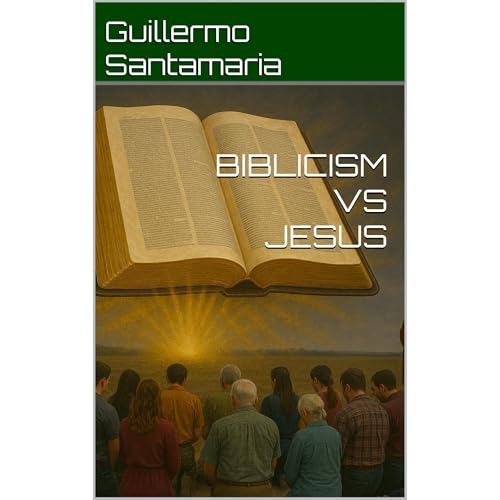
BIBLICISM VS JESUS
No se pudo agregar al carrito
Add to Cart failed.
Error al Agregar a Lista de Deseos.
Error al eliminar de la lista de deseos.
Error al añadir a tu biblioteca
Error al seguir el podcast
Error al dejar de seguir el podcast
Obtén 3 meses por US$0.99 al mes
 Exclusivo para miembros Prime: ¿Nuevo en Audible? Obtén 2 audiolibros gratis con tu prueba.
Exclusivo para miembros Prime: ¿Nuevo en Audible? Obtén 2 audiolibros gratis con tu prueba.
Compra ahora por $3.99
-
Narrado por:
-
Virtual Voice

Este título utiliza narración de voz virtual
Summary
Biblicism vs. Christ: The danger of elevating the Bible above Christ Himself. Scripture is the record; Christ is the living Word and the only true Teacher.
Bible before the KJV: From scrolls in ancient Israel, to the Septuagint, the Latin Vulgate, Reformation vernaculars, and Geneva Bible. KJV (1611) emerged as a majestic, public-reading Bible.
Puritans & Baptists: Many Puritans resisted the KJV, preferring Geneva. Critics like Hugh Broughton and John Canne saw it as too “episcopal” and lacking helpful notes. Baptists sometimes used Geneva notes against infant baptism.
Old School Baptists (1800s): Opposed “new translations” like the Revised Version. Defended KJV as providentially preserved, familiar, and Spirit-honored, though not yet in a KJV-Only sense.
Preservation: Scripture itself testifies that God preserves His Word (Psalm 12:6–7; Matt. 24:35; John 10:35). Preservation isn’t about autographs but about God ensuring His people always have His Word.
Teachers: Jesus Christ is the only Teacher of His people (Matt. 23:8; 1 John 2:27). Ministers are secondary instruments only. The Bible is not a “co-teacher,” but Christ’s appointed testimony through the Spirit.
Textual Criticism: Positives—confirms preservation, exposes scribal slips, strengthens apologetics. Dangers—misused to exalt human wisdom and unsettle faith.
Modern reflections: Elder Robert Lackey emphasized the KJV as preferred but not inspired; later voices (like Santamaria) argue strongly for the KJV as God’s preserved, inspired Word in English.


